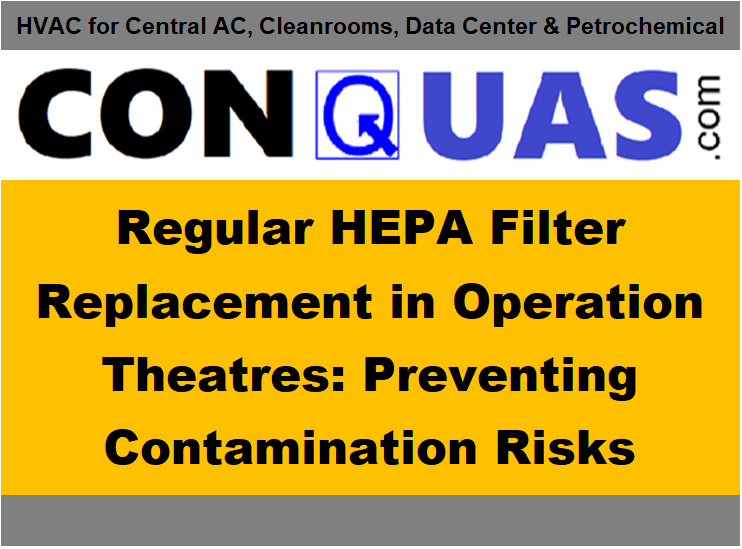Regular HEPA Filter Replacement in Operation Theatres: Preventing Contamination Risks
Introduction
In the complex realm of the healthcare industry, the preservation of patient well-being and the assurance of sterile environments stand as paramount objectives. A critical factor that significantly influences these goals is the consistent replacement of HEPA (High-Efficiency Particulate Air) filters in operation theatres. Engineered with meticulous precision to capture particles as minuscule as 0.3 micrometers, these filters play a pivotal role in curtailing the dispersion of airborne contaminants, including bacteria, viruses, and pathogens. This article delves into the vital significance of routine HEPA filter replacement, not only to prevent the perils of filter clogging but also to align with crucial codes and standards.
The Crucial Role of HEPA Filters in Operation Theatres
HEPA filters emerge as unsung champions within the intricate ecosystem of operation theatres. Their efficiency in filtration guarantees that the air circulating within the environment remains pure, devoid of detrimental particles. By capturing even the most inconspicuous entities, HEPA filters safeguard the immaculate setting mandated for surgical procedures, thereby mitigating the potential for post-operative infections and complications.
Understanding the Implications of Filter Clogging
Over time, HEPA filters accumulate contaminants, leading to a decline in efficiency. The phenomenon of filter clogging, which signifies compromised filtration, disrupts the balance of air circulation within the operation theatre. If unattended, this disruption becomes a gateway for turbulent currents that can disrupt the sterile domain, amplifying risks for patients and healthcare providers alike.
Compliance with Codes, Standards, and NABH Guidelines
The imperative nature of HEPA filter replacement harmoniously aligns with a spectrum of codes and standards that govern healthcare settings. Notably, ASHRAE Standards 170 and 52.2 provide directives for air quality in healthcare establishments, underscoring the indispensable role of efficient air filtration systems. The significance is mirrored within ISO 14644-1, which defines permissible particle counts in controlled environments, further validating the pivotal role of unhindered filtration. Moreover, compliance with NABH (National Accreditation Board for Hospitals & Healthcare Providers) standards ensures adherence to stringent protocols, enhancing patient safety and quality care.
Preserving Patient Safety and Clean Room Classification
At the core of the healthcare industry, patient safety remains paramount. Sustaining a sterile environment is an essential element of this commitment. By adhering to codes, standards, and the principles of clean room classification, healthcare institutions not only ensure patient safety but also mitigate potential liabilities stemming from post-operative complications.
Collaborative Vigilance with Differential Pressure Gauges
Enhancing the discourse is the role of Differential Pressure Gauges. Though not the focal point, these gauges act as sentinels for HEPA filters. Monitoring pressure differentials across filters, they provide early warnings of potential filter clogging and compromised functionality. This collaborative surveillance aids in the judicious replacement of filters, further fortifying the integrity of sterile environments.
Conclusion
The practice of regular HEPA filter replacement within operation theatres emerges as a linchpin in upholding patient safety and invigorating infection control measures. By embracing this practice, healthcare institutions not only mitigate the specter of filter clogging and its consequences but also reaffirm their commitment to delivering optimal patient care. The consistent replacement of HEPA filters aligns seamlessly with codes, standards, clean room classification, and the collective ethos of safeguarding healthcare environments.
